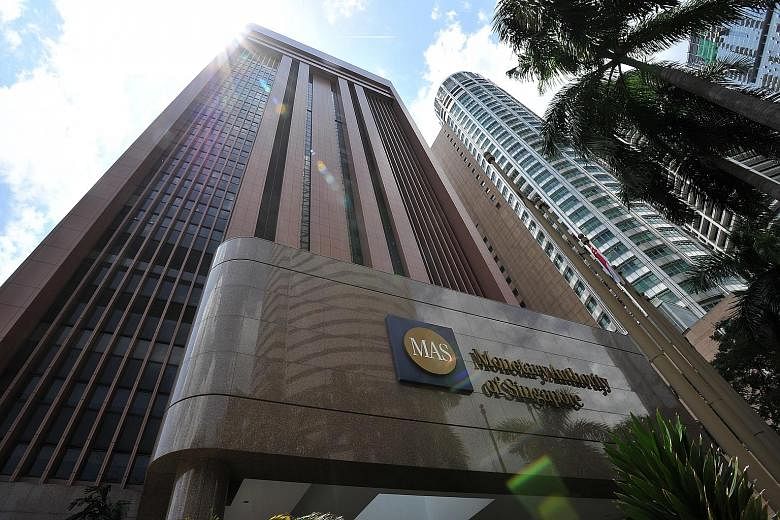Some banks in Singapore could do more to strengthen their underwriting practices when lending to businesses, the Monetary Authority of Singapore (MAS) said yesterday.
Without naming any of the institutions, the banking regulator yesterday said a review of lending practices has found that some lenders had been lax in areas such as assessing borrowers' credit and monitoring the situation when clients are given loans that deviate from standard policy.
The central bank said it had also found "isolated cases of undesirable lending practices".
Overall, however, the review found that banks generally had sound underwriting policies and procedures in place to assess the creditworthiness and repayment capability of borrowers.
MAS conducted the review to see whether banks had relaxed their loan structures and covenants, or under-priced risks in their corporate lending, given the low interest rates of the past several years.
The publication of the report comes in the wake of reports in the past two weeks by local banks that they are seeing more stress in their loan books as rising numbers of corporate borrowers from the oil and gas sector are being hit by low crude prices.
The review found that most banks had clear corporate lending strategies and credit assessment frameworks, MAS said.
However, not all banks performed robust analyses of the credit risks presented by their target markets.
Banks also generally had appropriate frameworks for the approval of loans and limits for the granting of new credit facilities. But there were instances when banks granted excessive powers to business units to approve credit exceptions such as temporary limit increases, limit excesses and waivers of credit conditions and loan covenants.
In general, there is room for banks to improve the robustness and documentation of their credit assessments, MAS said.
"We also noted instances where banks did not adequately assess or document their analyses of the financial information of borrowers and guarantors, the experience and integrity of borrowers' key management staff, and the borrowers' business and industry outlook," the regulator said.
Also, the review found that there were increasing instances of banks granting general purpose working capital or short-term loan facilities to companies, instead of trade finance facilities for borrowers' specific trading requirements, MAS said.
Trade finance facilities allow banks to better control the cash flows of the transactions they are financing to reduce repayment risks.
In contrast, working capital loans are often granted on a clean basis with minimal covenants. Banks have no visibility of borrowers' use of the funds and have limited or no control over the cash flows.
All the three local banks said they continue to maintain conservative approaches to lending despite the current challenging conditions.
DBS said it has have multiple layers of credit assessment, while OCBC said it takes a prudent approach to credit assessment. UOB said it continues to maintain stringent credit evaluation.

